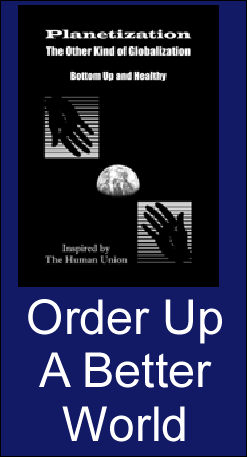AN FBI agent visited the Engineering and Physical Sciences Library at the University of Maryland, College Park, in April 1986, asking staff members to report on the reading habits of "anyone with a foreign-sounding name or foreign-sounding accent."
That same day, the agent visited the Chemistry Library, asking again for surveillance and also requesting any records of database searches.
At the University of Maryland, as at most American universities, a large percentage of faculty and students have "foreign-sounding names or foreign-sounding accents." The FBI's request was both absurd and chilling.
As head of branch libraries at the time, I immediately met with the library staff and informed them of their obligation to maintain the confidentiality of all patron information, including book circulation records and database searches.
I discovered the FBI visits were part of a broader national effort called the Library Awareness Program, which was aimed at information control and surveillance in America's unclassified technical libraries. Such an intrusion on privacy and access to openly published information was a clear violation of our constitutional rights and of library ethics. In response, I wrote a series of articles for library journals, debated the FBI on television, testified before Congress and worked with Del. Samuel I. "Sandy" Rosenberg of Baltimore to help craft Maryland's library confidentiality law.
Today, 48 of our 50 states plus the District of Columbia have laws making it illegal for libraries to release patron information to anyone without a court order.
Now, under cover of the USA Patriot Act, passed Oct. 26, the FBI is poised to intrude once more on library confidentiality, this time with an arsenal of surveillance that even our library confidentiality laws may not be able to prevent.
The Patriot Act became law without congressional hearings or even a markup in committee. The act, which originated with Attorney General John Ashcroft, amended federal statutes governing criminal procedure, computer fraud, foreign intelligence, wiretapping and immigration, expanding the authority of the FBI and law enforcement to gain access to business, medical, educational and library records.
It also extended the laws governing wiretaps to Internet and electronic communications, challenging privacy and confidentiality in libraries. The new law replaces the traditional subpoena with a search warrant, which can be executed immediately. Libraries will no longer have the right to "quash" such a warrant.
Section 215 of the law concerns access to records under the Foreign Intelligence Surveillance Act (FISA). It overrides state library confidentiality laws, allowing an FBI agent to obtain a search warrant for "any tangible thing," including books, records, floppy disks, data tapes and computers.
It allows the FBI to compel production of library circulation records, Internet use records and registration information without demonstrating "probable cause." The agent can simply express his belief that the desired records may be related to an ongoing investigation related to terrorism or intelligence activities.
Librarians served with such a search warrant may not disclose, under penalty of law, the existence of the warrant. Even the patron cannot be told that he or she is the subject of an FBI investigation. Section 216 extends telephone monitoring laws to include all Internet traffic. Both state and federal law enforcement agencies may obtain an order under this provision, with federal agents able to obtain a nationwide wiretap order.
Section 216 is not limited to the investigation of terrorism or foreign intelligence, and officers or agents seeking warrants need only affirm that the information sought is relevant to a criminal investigation. The recipient of a monitoring order must cooperate fully and may not disclose that communications are being monitored. Libraries that provide Internet and e-mail service to patrons thus become targets of such orders.
Section 214 extends the FBI's telephone monitoring authority in FISA investigations to include all Internet traffic. Again, the agent need only claim that the desired records may be related to terrorism or intelligence matters.
There are many other provisions of the Patriot Act that offend librarians because of excessive secrecy or censorship, but what we surely cannot abide is the government's intrusion on library confidentiality. When the public's reading habits and personal communications are subject to government surveillance within the library, the delicate relationship of trust between libraries and their patrons is shattered and the chill on free expression and the right to know may be irrevocable.
This is not a partisan issue.
-------------
Herbert Foerstel is a retired librarian and author of eight books on First Amendment issues, including Surveillance in the Stacks (Greenwood Press, 1991) and Banned in the USA (Greenwood Press, 1994). He lives in Columbia.
Copyright © 2002, The Baltimore Sun
In accordance with Title 17 U.S.C. section 107, this material is distributed without charge or profit to those who have expressed a prior interest in receiving this type of information for non-profit research and educational purposes only.
A Chilling Intrusion
By Herbert Foerstel
Originally published April 29, 2002
juneemoon.8m.net
Posted on the Independent Newswire on 3 May 2002
Ref: www.indymedia.org/front.php3?article_id=177988
Back to the Practicum Menu for Item 3C, "The Art of Social Control - and the 'Health' Vaccine"
